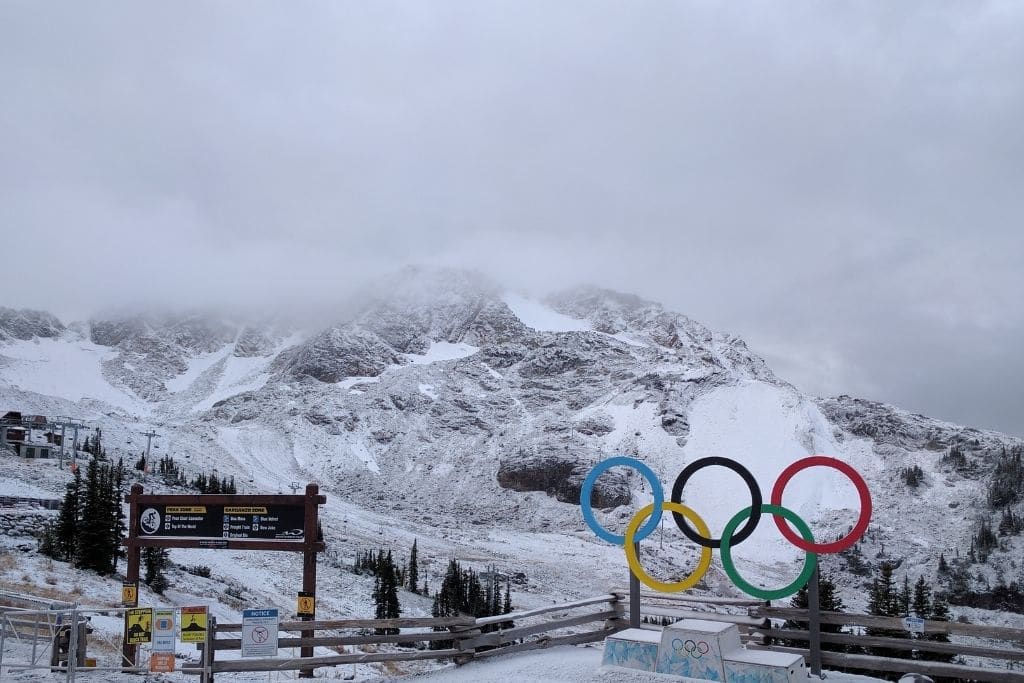Earlier this year, Beijing hosted an unconventional edition of the Winter Olympics. It was unique in many aspects, from the unprecedented measures to prevent a COVID-19 outbreak inside the Olympic village to the diplomatic boycott from several countries including the US, Australia, Britain and Canada. But the event has also reopened a debate around climate change and how rising temperatures are putting the Olympic Winter Games at stake. What solutions are hosting countries relying on and are these going to save the Games?
—
The 2022 Olympic Winter Games in Beijing caught the world’s attention for many reasons. Diplomatic boycotts from several countries made headlines worldwide weeks before the event even began, while the unprecedented COVID-19 countermeasures defined by the Chinese governments made this edition one of the strictest Olympics in history. But the 2022 Games also sparked a huge debate around an issue that is getting more and more pressing with each edition: how many cities are in the condition to host the Winter Olympics in the upcoming years?
According to a recent study from the University of Waterloo, at the current trend, only one of the 21 cities that hosted the event in the past 100 years will have a climate suitable for winter sports by the end of this century.
Was Beijing Ready to Host the Olympic Winter Games?
If you have been following the Winter Games, you would have likely noticed that extreme snowstorms that brought fresh snow to the Olympic venues northwest of Beijing forced several outdoor events to be postponed or cancelled. As normal as this might sound given the season these games are held in, having real snow in Olympic venues is a big deal. Experts argue that snowstorms happen less frequently than in the past, making natural snow less predictable and thus, less reliable.
For this reason, in preparation for the Winter Olympics, Beijing partnered up with Italian company TechnoAlpin to manufacture enough snow to cover the four outdoor event venues around the Chinese capital. Artificial snow, however, is detrimental for the environment to say the least, as it requires a huge amount of energy and water. According to the International Olympic Committee, for this edition alone, a staggering 49 million gallons of water were used to manufacture snow. However, to counteract Mother Nature’s plans, this year’s host venue needed more than just snow guns. Indeed, in order to last, artificial snow also requires steadily cold temperatures, something that Beijing has not experienced in the past 30 years, with temperatures in February often being above freezing. The Chinese capital found the solution in one of TechnoAlpin’s innovative snowmaking technologies, investing approximately USD$60 million in machines that can produce snow regardless of air temperatures and can guarantee its duration in warmer climates.
Are Things Getting Worse?
Chinese President Xi Jinping promised to host a “green ” Winter games by powering all 26 Olympic venues entirely by renewable energy and to be carbon neutral by carbon offsetting. Yet Beijing’s environmentally-unfriendly strategy could turn this Games’ edition into the “most unsustainable Winter Olympics ever held”, argued Professor Carmen de Jong, a geographer at the University of Strasbourg.
But the Chinese capital is not the first host venue to rely on fake snow. Since artificial snow was first used at the 1980 Winter Olympics in Lake Placid, New York, the trend has been steadily rising, with the most recent host countries relying almost exclusively on it. This has raised questions about the sustainability of the Winter Olympics, with climate experts and activists criticising this approach. PyeongChang in South Korea, which hosted the Games in 2018, manufactured nearly 90% of the snow in advance for a total cost of USD$6 million. Four years earlier, Russia used almost 80% of artificial snow for Olympic competitions in Sochi. The latter is also remembered as the warmest Winter Olympics host city, with daytime temperatures that averaged 10 degree Celsius.
What is the Future of the Olympic Winter Games?
Lesley McKenna, three-time Olympian representing Great Britain in the snowboard halfpipe category, argues that “the potential future scenario – in a world without winter sports and host venues as we know them – is a grave one”. Warm weather is becoming increasingly common in Winter Olympics and, if the trend continues, the future of the Games is indeed at risk. Innovative technologies such as snowmaking machines may have made some of the last editions possible. However, their huge environmental footprint is making experts question whether it is worth relying on them at all. But one thing is sure: if the Earth’s temperature continues to rise at the current trend, not even artificial snow will be able to save the world’s most popular winter event.
You might also like: The Tipping Points of Climate Change: How Will Our World Change?


















